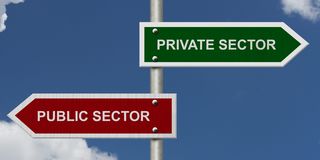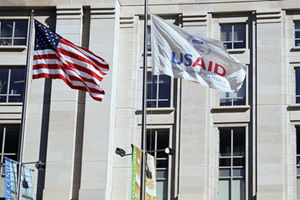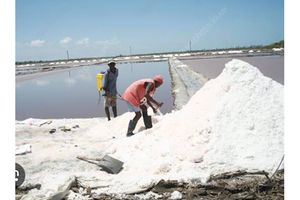Public-private dialogue the way to go

Last week this column brought you an opinion on climate change and its mitigation. Herein below is a sequel that tells my esteemed readers why dialogue between the public and private sectors of the Economy are important in Tanzania’s quest to mitigate climate change, thereby attaining socioeconomic development.
On climate change, I signed off my last article with what the future holds for Tanzania. Zanzibar is already focusing on a Blue Economy. But, there is also an alternative to that in this day and age of climate change: the Green Economy
Generally, the Green Economy involves farming and renewable energy that is low-carbon, resource-efficient and socially-inclusive.
According to the United Nations Environment Programme (UNEP) – where Ms. Joyce Msuya, a Tanzanian, was Deputy Executive Director until her new appointment a week ago as Assistant Secretary General Humanitarian Affairs – in a Green Economy growth in employment opportunities and income are driven by public and private investment in productive economic activities, infrastructure and assets that allow reduced carbon emissions, and also prevent loss of biodiversity.
International Organisations like UNEP and the UN Development Programme (UNDP) continue to do a sterling job, sometimes doing so amid hostile environments. But, it must be remembered that a collaborative approach involving the public and private sectors is the way forward here.
The UN Global Compact Network Tanzania is a shared mission advancing the 17 Sustainable Development Goals initiative (SDGs), and to which Tanzania is a signatory.
From 2022, the Network will organise a Business Award intended to recognise Tanzanian companies which are working to growing their businesses, while advocating social accountability in line with the four pillars of Human Rights; Labour; the Environment and Anti-Corruption alongside the SDGs.
It is, therefore, apt that the Pilot for Research for Dialogue Project has brought together many like-minded individuals and organisations to help Tanzania foster an inclusive dialogue forum that can inform on policy and regulatory frameworks.
Prof Elise Feron – who is a Senior Research Fellow at the Tampere Peace Institute of Tampere University in Finland – wrote that “resilience-based policies do not erase the role of individuals and societies in facing risks, but enhances their preparation and capacities to react. Conflict prevention does not aim at suppressing conflict”.
That we are discussing this reminds one of the challenges that Tanzania has had over the years, as we try to navigate the tricky landscape between government-led socioeconomic development and private sector-led socioeconomic growth.
Let’s take an example in which an imaginary organisation invests in a large horticultural farm in the Kilombero Valley. But, it is the sort of investment in hundreds of millions dollars in which the investor refuses to part with bribes for unnamed persons in power.
We have seen enough examples of negative campaigns being initiated and sustained to the extent that the investor opts out, doing so at a loss of returns on the investment; thousands of jobs, etc.
These things happen, and we have seen them bring to a close otherwise viable projects despite the good words and intentions of higher-ups in Government.
It is highly probable that the reason such conflict fails to be resolved is simply because our conflict resolution mechanisms are not robust enough, and there also seems to be a will and commitment from the chain of local officials all the way to the top even if the Presidency has shown time again the willingness to ease the investment environment.
The Covid-19 pandemic has been a perfect – for lack of a better term – example that has given world governments an opportunity to re-examine how it has mitigated women’s role in managing resilience during pandemics of this kind.
We know that women in small businesses in Tanzania have a huge role to play in cushioning families against hardships. This is partly the reason why access to micro-finance; sorting out trade barriers and difficulties in accessing title deeds become issues that need public/private dialogue to resolve.
Effectively addressing inequality is the one major challenge that Tanzania needs to deal with now – as well as continued public/private dialogue, a trend set by the policy briefs conducted by Pilot for Research and Dialogue.



